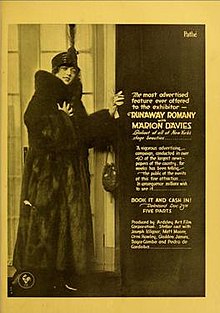1917 in film was a particularly fruitful year for the art form, and is often cited as one of the years in the decade which contributed to the medium the most, along with 1913. Secondarily the year saw a limited global embrace of narrative film-making and featured innovative techniques such as continuity cutting. Primarily, the year is an American landmark, as 1917 is the first year where the narrative and visual style is typified as "Classical Hollywood".

Marion Davies was an American actress, producer, screenwriter, and philanthropist. Educated in a religious convent, Davies fled the school to pursue a career as a chorus girl. As a teenager, she appeared in several Broadway musicals and one film, Runaway Romany (1917). She soon became a featured performer in the Ziegfeld Follies.

Matt Moore was an Irish-born American actor and director. He appeared in at least 221 motion pictures from 1912 to 1958.
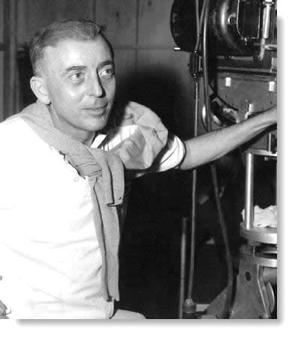
Charles Davies Lederer was an American screenwriter and film director. He was born into a theatrical family in New York, and after his parents divorced, was raised in California by his aunt, Marion Davies, actress and mistress to newspaper publisher William Randolph Hearst. A child prodigy, he entered the University of California, Berkeley at age 13, but dropped out after a few years to work as a journalist with Hearst's newspapers.

Janice Meredith, also known as The Beautiful Rebel, is a silent film starring Marion Davies, released in 1924 and based on the book and play A Colonial Girl written by Paul Leicester Ford and Edward Everett Rose. The play opened at the end of 1900 and was the first starring vehicle for stage actress Mary Mannering. The movie follows the actions of Janice Meredith, who helps George Washington and Paul Revere during the American Revolutionary War.

The Restless Sex is a 1920 American silent drama film starring Marion Davies, and Ralph Kellard. It was directed by Leon D'Usseau and Robert Z. Leonard and written by Frances Marion. The film is based upon the 1918 novel of the same name by Robert W. Chambers and was distributed by Paramount Pictures under the Famous Players–Lasky Corporation name.

Joseph Kilgour was a Canadian actor of the silent film era. He was a well-known veteran stage actor in Broadway theatre before entering silent films. He appeared in more than 50 films between 1909 and 1926.

Within the Law is a 1923 American silent drama film directed by Frank Lloyd and starring Norma Talmadge. In 2009, the film was released on DVD along with Talmadge's 1926 film Kiki. Jane Cowl had starred in the original 1912 Broadway production of Bayard Veiller's play of the same name about a young woman who is sent to prison and comes out seeking revenge.

Enchantment is a 1921 American silent romantic comedy film produced by Cosmopolitan Productions and released by Paramount Pictures. The film was directed by Robert G. Vignola and starred Marion Davies. A print of the film exists in the Library of Congress.
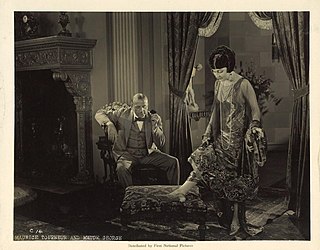
Torment is a 1924 American silent crime drama film produced and directed by Maurice Tourneur and distributed by Associated First National. This film stars Bessie Love, Owen Moore, and Jean Hersholt. The film is based on a story by William Dudley Pelley with script by Fred Myton and titles by Marion Fairfax. It is a lost film.
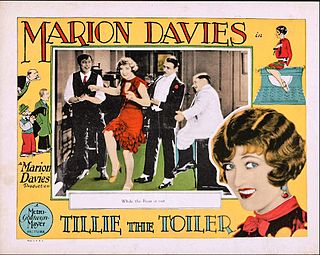
Tillie the Toiler is a 1927 American silent film comedy produced by Cosmopolitan Productions and released through Metro Goldwyn Mayer studios. It is based on Russ Westover's popular comic strip Tillie the Toiler. The film was directed by Hobart Henley and stars Marion Davies.

Cecilia of the Pink Roses is a lost 1918 American silent drama film directed by Julius Steger and starring and produced by Marion Davies in her second feature film. It was distributed by Select Pictures. It was based on the novel by Katherine Haviland Taylor.
Marianne is a 1929 American silent romantic-drama film about a French farm girl who, despite already having a French fiancé, falls in love with an American soldier during World War I. It was made first as a silent film, then as a musical with a different cast, but Marion Davies starred in both versions.
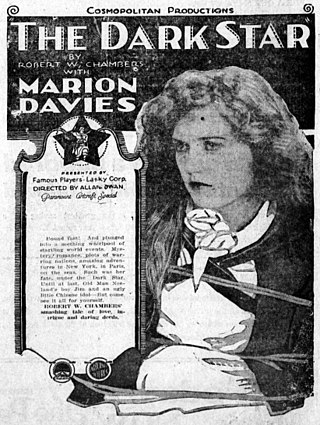
The Dark Star is a lost 1919 silent film adventure directed by Allan Dwan and starring Marion Davies. It was based on the 1917 novel by Robert W. Chambers and produced by Cosmopolitan Productions. It was released through Paramount Pictures.

Getting Mary Married is a 1919 silent American comedy film directed by Allan Dwan and starring Marion Davies. It was distributed by the Select Pictures Corporation.

The Yellow Typhoon is a 1920 American silent drama film directed by Edward José and written by Monte M. Katterjohn. It is based on the 1919 novel The Yellow Typhoon by Harold MacGrath. The film stars Anita Stewart, Ward Crane, Donald MacDonald, Joseph Kilgour, George Fisher, and Ed Brady. The film was released on May 3, 1920, by First National Exhibitors' Circuit.
The Silent Woman is a 1918 American silent drama film, directed by Herbert Blaché. It stars Edith Storey, Frank Mills, and Joseph Kilgour, and was released on September 2, 1918.
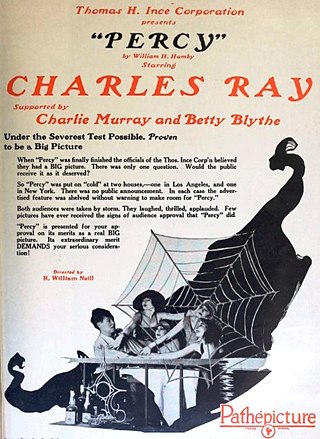
Percy is a lost 1925 American silent comedy film directed by Roy William Neill and starring Charles Ray, Louise Dresser and Victor McLaglen. The film is based upon the novel The Desert Fiddler by William Henry Hamby.
The 1989 New Year Honours in New Zealand were appointments by Elizabeth II on the advice of the New Zealand government to various orders and honours to reward and highlight good works by New Zealanders. The awards celebrated the passing of 1988 and the beginning of 1989, and were announced on 31 December 1988.
Womanhood, the Glory of the Nation is a 1917 American lost silent drama film directed by J. Stuart Blackton and William P. S. Earle, and written by Blackton, Helmer W. Bergman, and Cyrus Townsend Brady. It is a sequel to the 1915 movie The Battle Cry of Peace. The film stars Alice Joyce and Harry T. Morey. It is a lost film.
